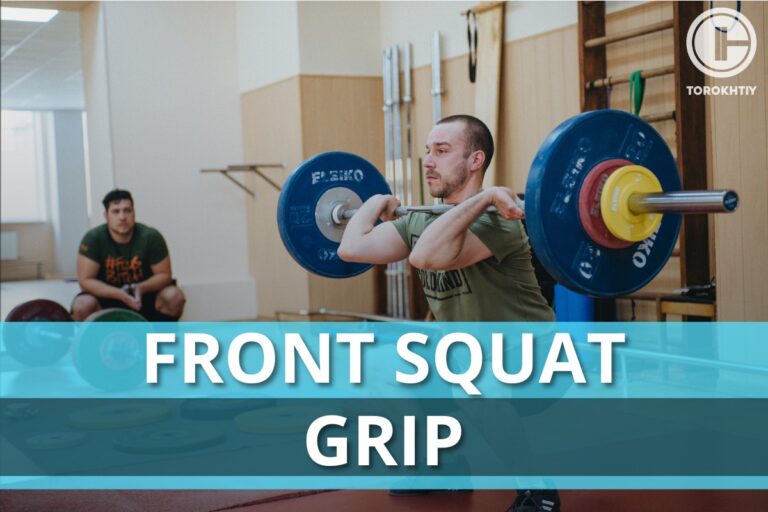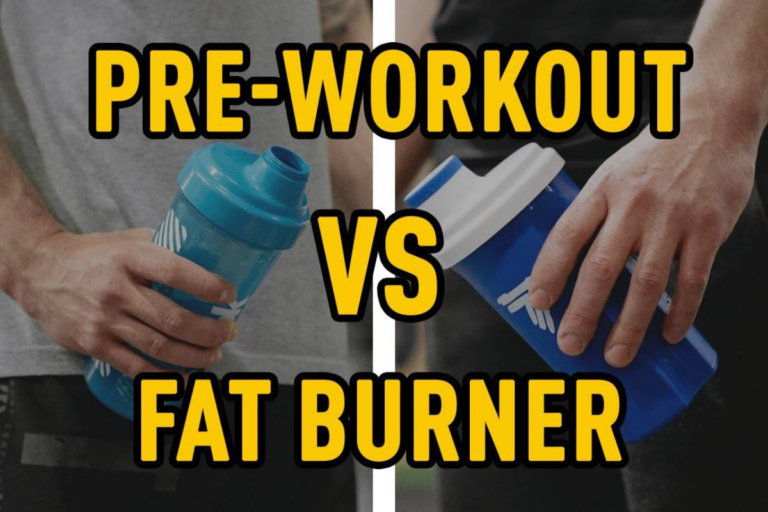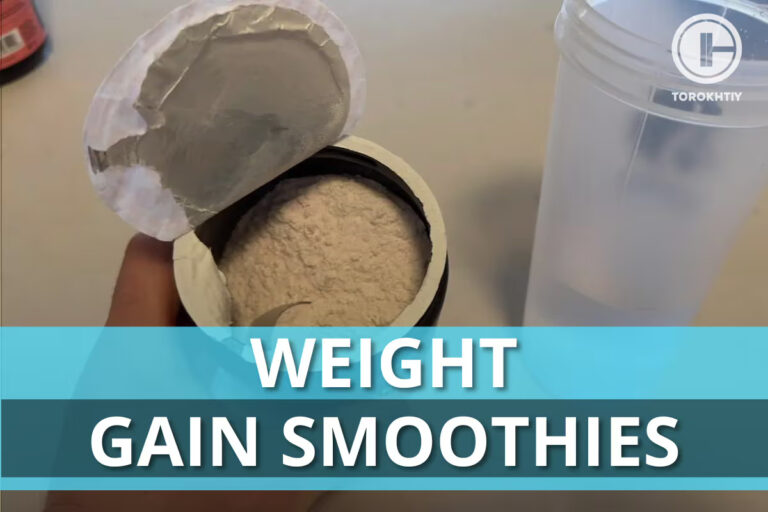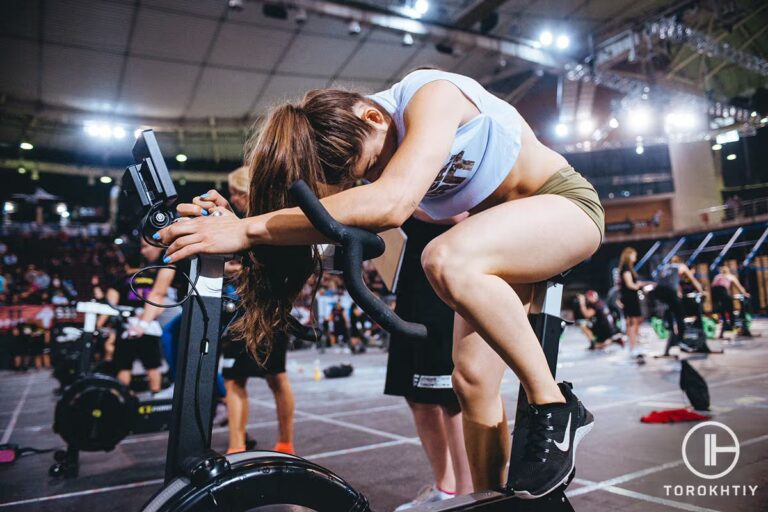Is Cereal Good For Bulking? All You Need to Know
You may have seen some of your favorite influencers devouring entire bowls of cereal in an attempt to gain weight. As a result, you may have been left wondering, “is cereal good for bulking?” In this article, we’ll be going over why not all cereals are made equal. While they can be an excellent choice for bulking, make sure you choose relatively healthy options. Of course, it’s important to prioritize protein intake while bulking as well.
Is cereal good for bulking? It depends! While cereal can be a great source of carbs and calories, make sure you’re buying whole grain options with high fiber and low sugar. This will help ensure you’re choosing more generally healthy options compared to the highly processed sugary options available.
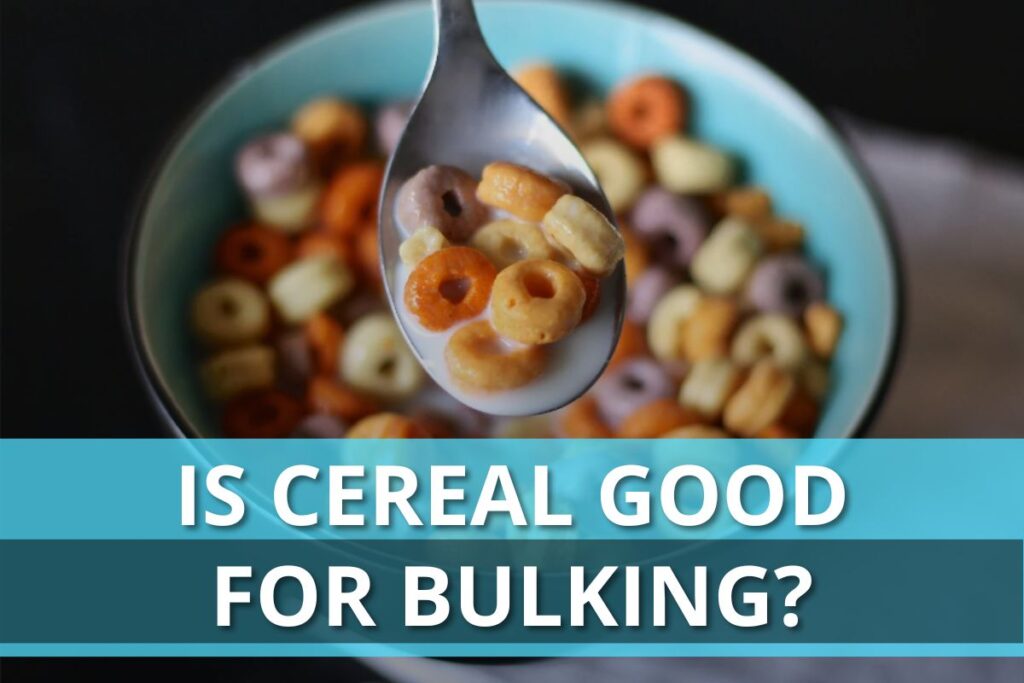
Is Cereal Good for Bulking?
In short, yes, cereal is good for bulking as long as you’re choosing the right options. As we’ll cover more in-depth below, there are a lot of unhealthy, sugar-loaded options available when it comes to cereal. As long as you’re sticking to lower sugar and higher fiber options, cereal is a great convenient source of carbs.
While it’s not exactly a complete meal, when paired with some fruit and protein powder, it can be part of a nutritionally complete and calorically dense meal.
Overall, while we’ll be focusing on how to pick the “healthiest” cereal possible, remember there’s nothing wrong with having “unhealthy” cereal in moderation if you’re mainly eating high-quality whole foods. Heavily limiting yourself can make it harder to eat well for a longer time frame. We recommend a flexible approach that accommodates your own personal needs.
While we can recommend generally “healthier” options, we’re not seeking to demonize any specific foods! As long as you’re eating so-called “unhealthy” foods in moderation as part of an otherwise healthy diet, they shouldn’t cause much of a problem.
Benefits of Cereal
As a general guideline for this section, we’ll be discussing the nutritional information for Quaker’s Shredded Wheat Cereal provided by USDA. While it may not necessarily be the best cereal for bulking or the best cereal for bodybuilding, it is certainly a good and healthy option when considering cereal for muscle gain. Keep in mind that more sugary options will have less protein and fiber and significantly more sugar.
With this being said, defining foods as “healthy” and “unhealthy” is largely subjective. If you already eat a high-fiber diet, getting some more in through cereal won’t make a major difference. Overall, consider your diet as a whole to determine which foods are best for you! If you eat a high-quality diet, there’s nothing wrong with having some “unhealthy” cereal in moderation – especially if your goal is to gain weight.

✅High Calorie Density
For 1 serving of shredded wheat (3 biscuits or 63g), you can expect 219 calories. While this isn’t as calorically dense as something like nut butter or oil, it’s still a fairly high-calorie cereal for bulking. Especially when eaten with whole milk, bananas, or other calorie dense foods, a single bowl of cereal can be an excellent source of calories.
✅A Source of Carbohydrates and Additional Protein
When considering cereals for weight gain, keep in mind that most of the calories from cereal comes from its carbohydrate content. One serving of shredded wheat contains 51g of carbs, which includes more fiber than regular cereals, as we’ll cover below. Additionally, you’ll be getting 7g of protein, which isn’t too much, but it’s a decent boost to your total protein intake for the day!
✅High in Fiber (If You Know How to Choose Cereal)
Finally, as mentioned, you can expect a lot of fiber from the right cereal. While more sugary options will tend to be lower in fiber, shredded wheat has a solid ~7.5g of fiber per serving, which is a significant amount for your daily needs!

What to Pay Attention to When Choosing Cereals?
Of course, not all cereals are made equally. While something like Shredded Wheat will be a good option, there are dozens of choices available. Use this section as a guide for what cereal will be the best option!
1. Get into the Habit of Reading Nutrition Labels
Make sure you know what you’re buying! A nutrition label should tell you everything you need to know about a cereal. Check for its macro breakdown and calorie count to ensure it’s in line with your goals. Additionally, scan the ingredients list to make sure you’re buying an option without unnecessary additional ingredients.
2. Choose Whole-Grain Varieties
If you’re looking for a high-fiber cereal, choosing a whole-grain variety will be your best bet. It’s recommended you shoot for ~5g of fiber per serving, and it’s very unlikely a highly processed option will contain this much fiber. With the recommended daily fiber intake for optimal health being ~29g for men and ~26g for women, we recommend sticking to whole grain choices for the healthiest options.
3. Choose with Zero-to-Minimum Added Sugar
Similar to the point above, if you want a healthier option then choose a low-sugar option. Shredded wheat, for example, contains only ~0.5g of sugar per serving. More sugary cereals can easily have 10g+ per serving, so make sure to check these numbers!
Overall, unless you’re actively limiting your sugar intake, it’s alright to have some sugary cereal every once in a while. Especially if you’re eating it in moderation!
4. Choose Lower Sodium Varieties
If a cereal has plenty of added sugar, it probably has plenty of added sodium as well. While sodium intake may not be a major issue for you, low sodium is still a good indication of a high-quality cereal that hasn’t been overly processed.
5. Consider the Amount of Saturated Fats
Finally, while you may not expect it, many cereals like granola can be deceptively high in saturated fats as well. While this won’t be a major concern for most cereals, too many saturated fats are linked to higher cholesterol and potential cardiovascular issues, making it best to have total intake under control!
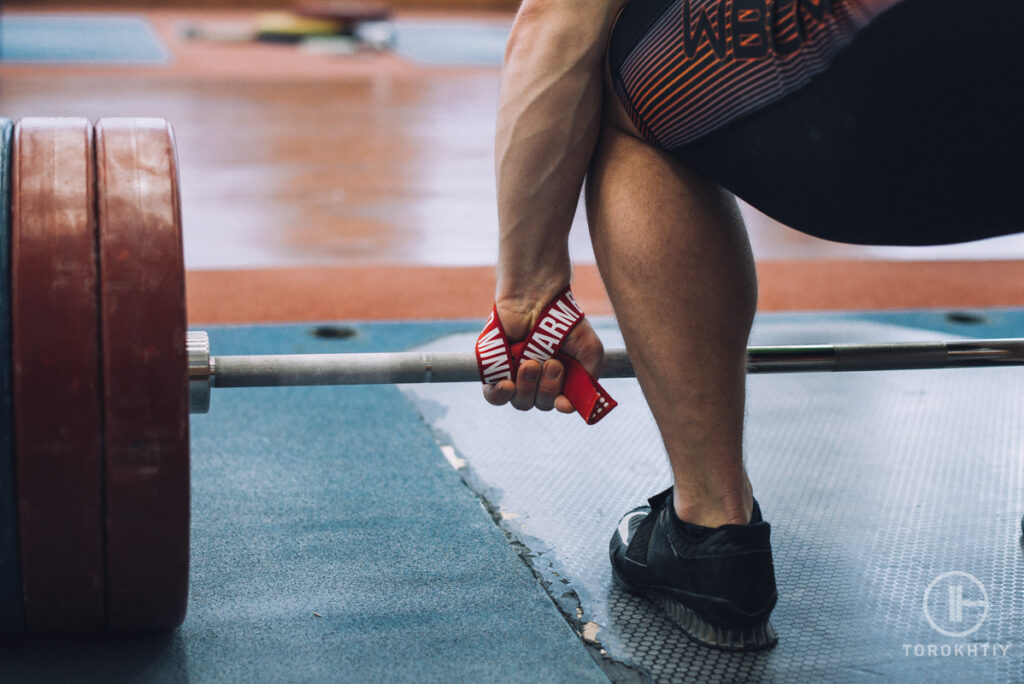
Lean Bulking Tips
1. Choose a Non-Aggressive Calorie Surplus
First, be sure you’re not using your bulk as an excuse to eat in a ridiculously high caloric surplus. For best results, try to eat in a moderate surplus of about 250-500 calories a day. This will ensure you’re putting on muscle mass with minimal fat gain over time.
2. Eat Enough Protein
It’s also important to eat enough protein so you’re building muscle instead of fat. About 0.7-1g of protein per pound of body weight should be ideal for building muscle. If you’re not eating enough protein, the extra calories you’re consuming will be put not to muscle growth but to fat instead.
3. Engage in Strength Training with Progressive Overload
Similarly to eating enough protein, you won’t be putting on muscle if you’re not engaging in strength training with progressive overload. As long as you’re consistently working out and pushing the intensity of your workouts, you should see progress in building muscle.
4. Sleep 8-9 Hours a Day
Recovery and rest are equally important to seeing progress as training hard. You won’t be able to put on muscle if you’re not giving your body the chance to rebuild. Aim to sleep at least 8-9 hours a night so you’re fully recovered each time you step into the gym. Sleep deprivation will also inhibit your body’s ability to grow muscle, and may promote fat gain.
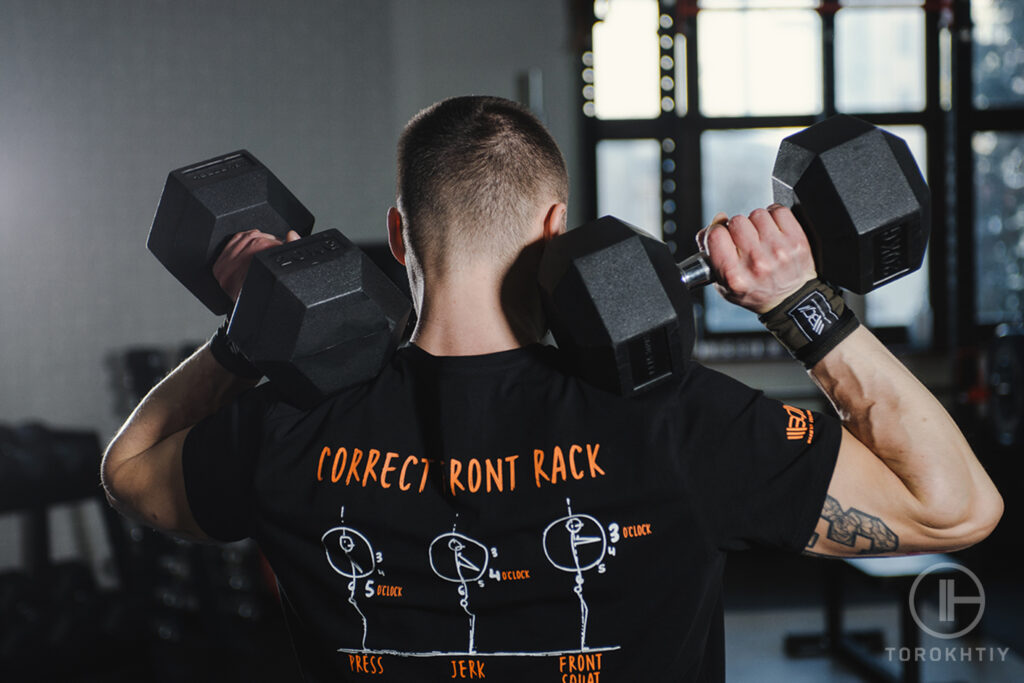
5. Have Patience and Be Consistent
Remember, Rome wasn’t built in a day! You’ll never make genuine progress if you give up whenever you don’t see results right away. The best way to bulk is slowly and steadily, so as long as you’re staying consistent, you will make serious progress over time.
6. Limit Weight Gain to ~1% of Total Body Weight per Month
Finally, this ties in with not eating in an excessive surplus. To limit excessive fat gain, you should aim to gain a maximum of 1% of your total body weight each month. It’s worth noting that advanced athletes may want to put on even less than this – like 0.25% unfortunately being realistic. If you are a woman – split those numbers in a half.
While everyone’s needs are slightly different when it comes to bulking, this is a good general number to strive for. With all the tips above, consider your personal needs and individual responses and adjust accordingly!
Best Mass Gainer – Transparent Labs Mass Gainer
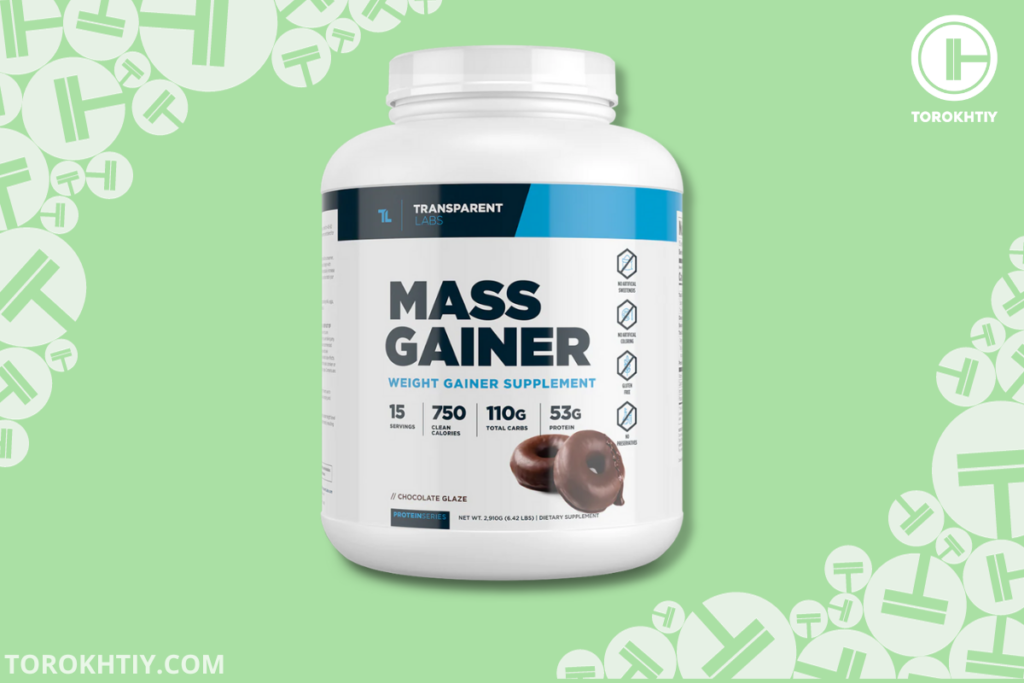
If you struggle to get enough calories in, you may be interested in trying a mass gainer supplement. When taken alongside cereal, a mass gainer shake can help you maximize your protein and calorie intake. If you’re interested, Transparent Labs is an excellent option!
You can expect 750 calories per serving, split over 53g of protein, 110g of carbs, and 14g of fat. While you can split this supplement into multiple servings, it’s ideal for those who struggle to consistently reach a caloric surplus.
It’s worth noting that we recommend using mass gainers in moderation, keeping the lean bulking tips outlined above in mind!
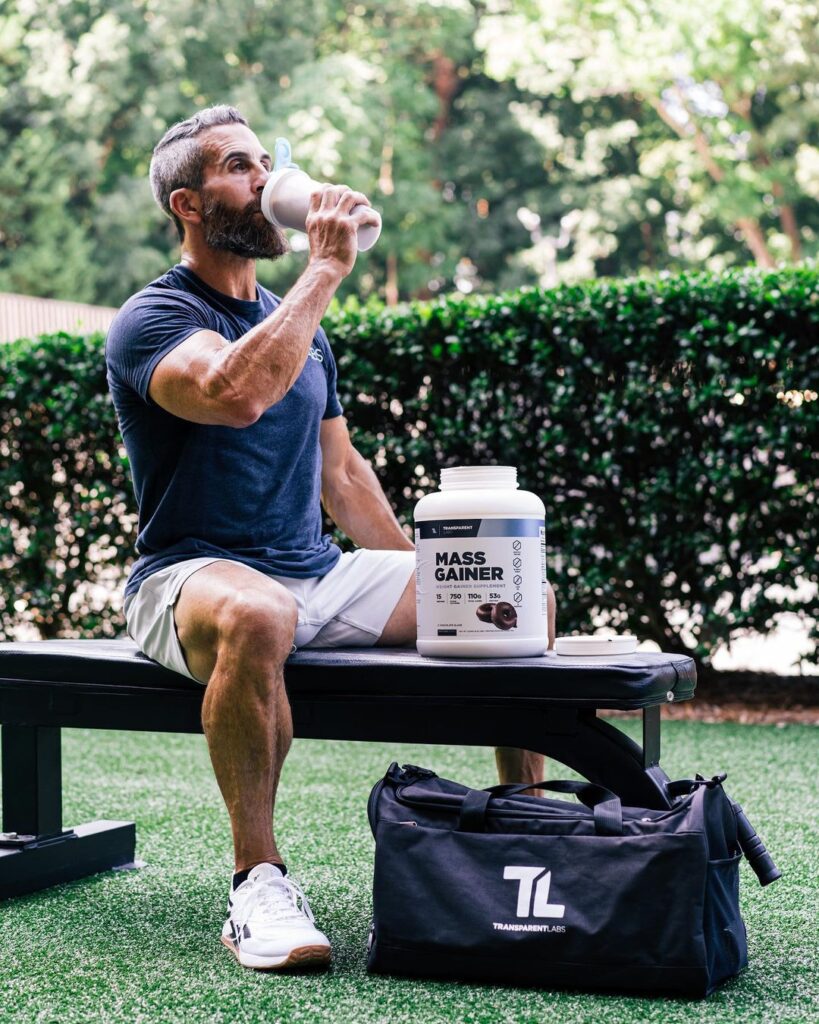
Transparent Labs offers consistently high-quality supplements, with their Mass Gainer containing no unnecessary artificial ingredients.
Keep in mind that mass gainers are typically more expensive than basic protein supplements. Each serving of Transparent Labs’ gainer will cost you about $5.33.
Best Protein Powder – Huge Isolate
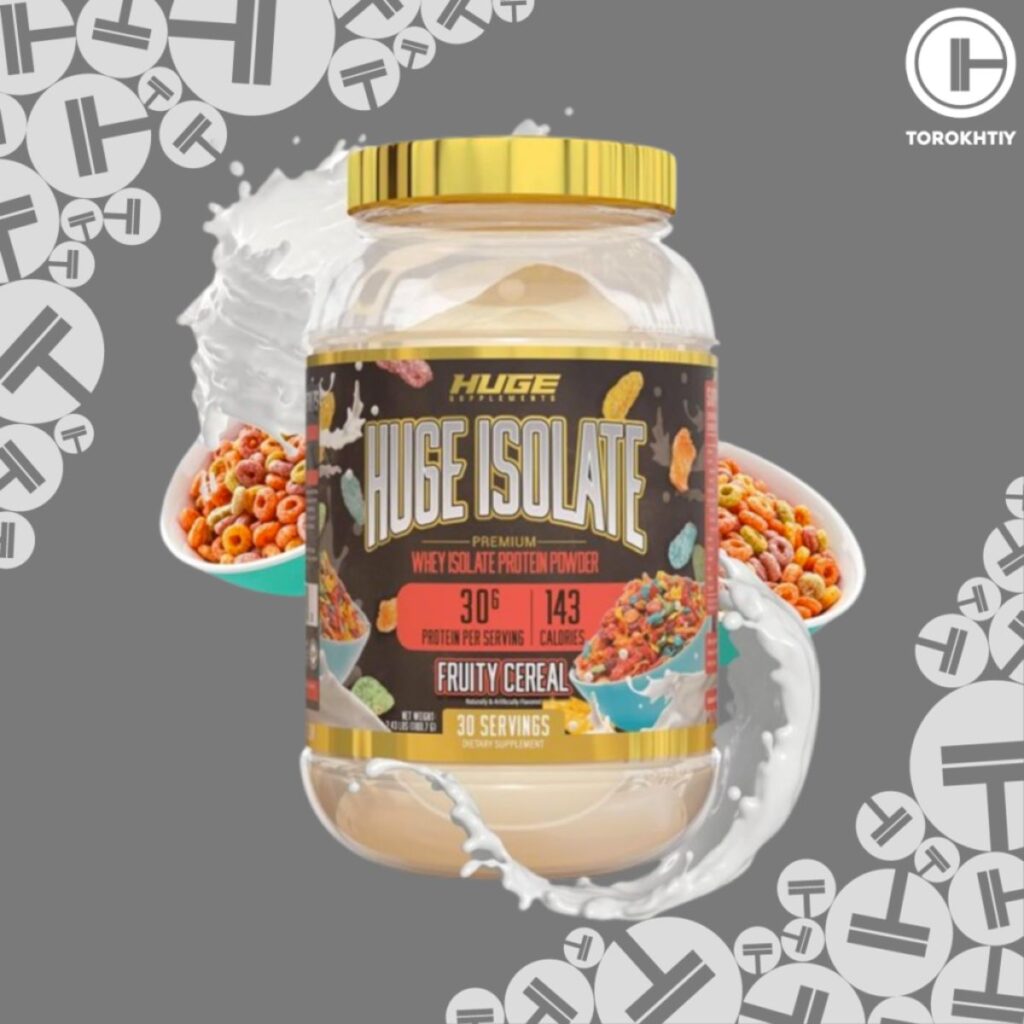
Because of mass gainers’ high-calorie count, they certainly aren’t for everyone. If you want a supplement to boost your protein intake without the extra calories, consider a high-quality whey isolate like this option from Huge.
Each serving of Huge Isolate contains 143 calories. This is broken down between 30g of protein, 3.5g of carbs, and 1g of fat. This makes a whey isolate ideal for those who get enough calories in but struggle with their protein intake.
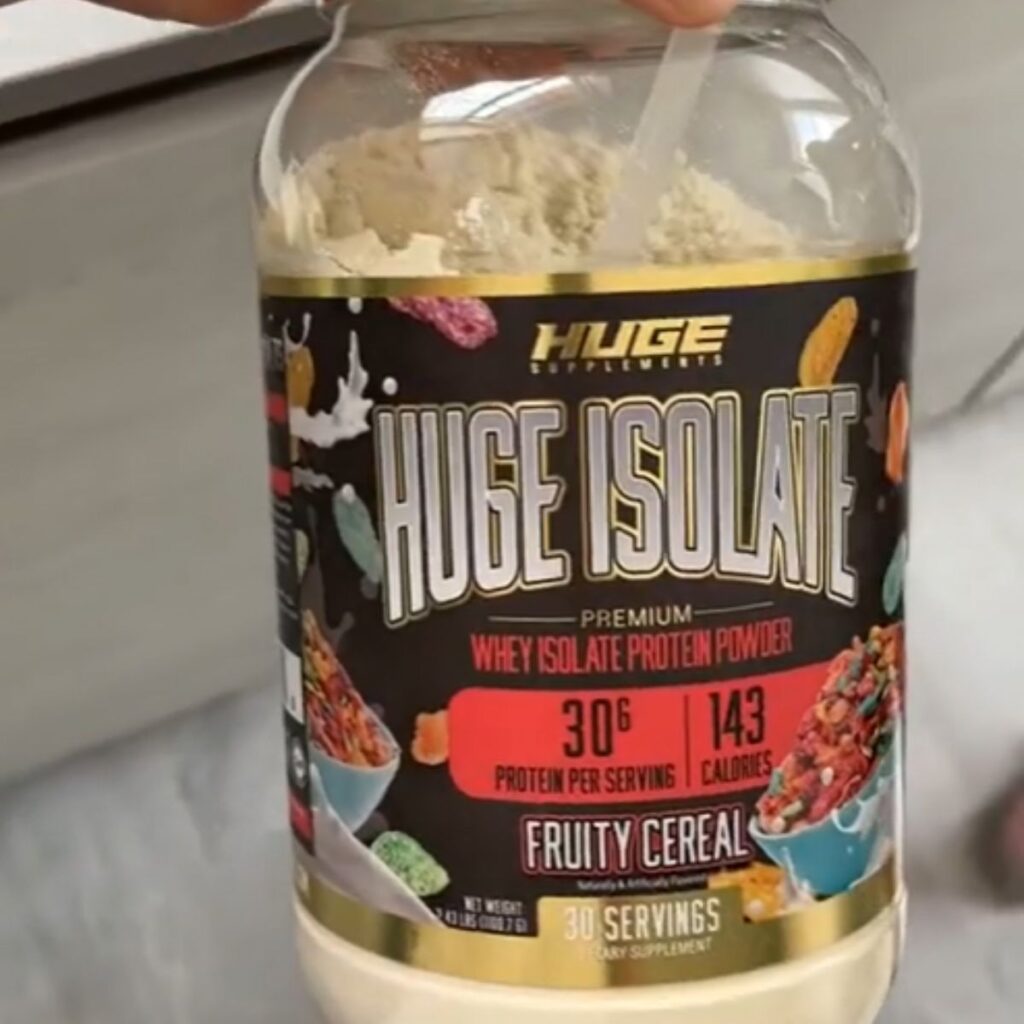
It’s worth noting that Huge formulates this product with the artificial sweetener sucralose. Some people prefer to buy all-natural supplements, so keep this in mind when making a decision!
Finally, Whey Isolates are significantly cheaper than mass gainers, with this supplement only costing about $2.00 per serving. This also makes Huge a great choice if you’re bulking on a budget!
FAQ
Is Cereal Good to Bulk Up?
Yes, as long as you’re choosing a whole-grain and low-sugar option, then cereal is a great calorically dense food for bulking. We recommend pairing it with other whole foods to create a full nutritionally complete meal.
Are Corn Flakes Good for Bulking?
All things considered, corn flakes are a decent option for bulking. While they are low in sugar, salt, and saturated fat, they don’t have an especially high amount of fiber. As a result, you could likely find much better options made with whole grains!
Is Cereal a Good Source of Carbs for Bodybuilding?
Yes, cereal is a convenient and healthy source of carbs as long as you’re buying the right brands. While sugary highly processed cereal won’t be great, whole-grain and high-fiber cereal can make a great addition to a bulking diet.
Is Cereal a Good Pre-Workout Meal?
Yes, because of its carbohydrate content, cereal can make an excellent meal before working out. More sugary cereals might even be great immediately before a workout for a quick boost of energy! Can you have a better option? Probably 🙂 Eating cereal after workouts can also be a great option, especially if you’re consuming it alongside some extra protein.
Conclusion
Overall, for bodybuilding, cereal can be a great choice as long as you’re making an informed choice. We recommend buying whole grain, high-fiber, low-sugar options, as these will be the healthiest options to include in bulk. As long as you’re also following our tips for a successful bulk, cereal should make an excellent addition to your bulking diet!
Additional supplements can be a great addition to your diet alongside cereal to ensure you’re maximizing protein intake. Some high-quality options include Transparent Labs Mass Gainer and Huge Isolate.
Is cereal a staple in your bulking diet? What’s your favorite breakfast option? Let us know your thoughts in the comments below!
Also read:
- Best Tasting Mass Gainer
- Best Budget Mass Gainer
- Is Mass Gainer Bad for You
- Smoothies for Weight Gain
- Bulking Breakfast
- Cheap High Calorie Meals
- Best Bulk Up Supplements
References:
- Everson A. Nunes, Lauren Colenso-Semple, Sean R. McKellar, Thomas Yau, Muhammad Usman Ali, Donna Fitzpatrick-Lewis, Diana Sherifali, Claire Gaudichon, Daniel Tomé, Philip J. Atherton, Maria Camprubi Robles, Sandra Naranjo-Modad, Michelle Braun, Francesco Landi, Stuart M. Phillips, “Systematic Review and Meta-Analysis of Protein Intake to Support Muscle Mass and Function in Healthy Adults,” Journal of Cachexia, Sarcopenia and Muscle 13, no. 2 (2022): 795-810, DOI: 10.1002/jcsm.12922
- FoodData Central, “Cereals Ready-to-Eat, QUAKER, Shredded Wheat, Bagged Cereal,” U.S. Department of Agriculture, https://fdc.nal.usda.gov/fdc-app.html#/food-details/172987/nutrients (accessed Oct. 23, 2023).
- Katherine D. McManus, “Should I Be Eating More Fiber,” Harvard Health Publishing, Harvard Medical School, https://www.health.harvard.edu/blog/should-i-be-eating-more-fiber-2019022115927 (accessed Oct. 23, 2023).
- Kay Cahill Allison, “When It Comes to Fiber, Cereal Fiber May Be Your Best Choice,” Harvard Health Publishing, Harvard Medical School, https://www.health.harvard.edu/blog/when-it-comes-to-fiber-cereal-fiber-may-be-your-best-choice-201102251535 (accessed Oct. 23, 2023).
- “The Truth about Fats: The Good, the Bad, and the In-Between,” Harvard Health Publishing, Harvard Medical School, https://www.health.harvard.edu/staying-healthy/the-truth-about-fats-bad-and-good (accessed Oct. 23, 2023).
Why Trust Us?
With over 20 years in Olympic Weightlifting, our team does its best to provide the audience with ultimate support and meet the needs and requirements of advanced athletes and professional lifters, as well as people who strive to open new opportunities and develop their physical capabilities with us.
By trusting the recommendations of our certified experts in coaching, nutrition, dietology, and sports training programming, as well as scientific consultants, and physiotherapists, we provide you with thorough, well-considered, and scientifically proven content. All the information given in the articles concerning workout programming, separate exercises, and athletic performance, in general, is based on verified data. We ensure that you can rely on our professionals’ pieces of advice and recommendations that can be treated as personalized ones which will benefit you and fully meet your needs.
The product testing process is described in more detail here
Author: Jacek Szymanowski
Certified Nutritionist,
M.Sc.Eng. Biotechnology
Performance Architect,
Strength and Conditioning Specialist
With over 30 years of fighting experience, specialization in nutrition coaching for athletes, and expertise in metabolic health and dietary strategies, Jacek offers a comprehensive approach to optimizing your performance and well-being. Backed by a Master of Science degree in Biotechnology, Jacek remains at the forefront of scientific advancements, ensuring that his coaching is always evidence-based and up-to-date.




